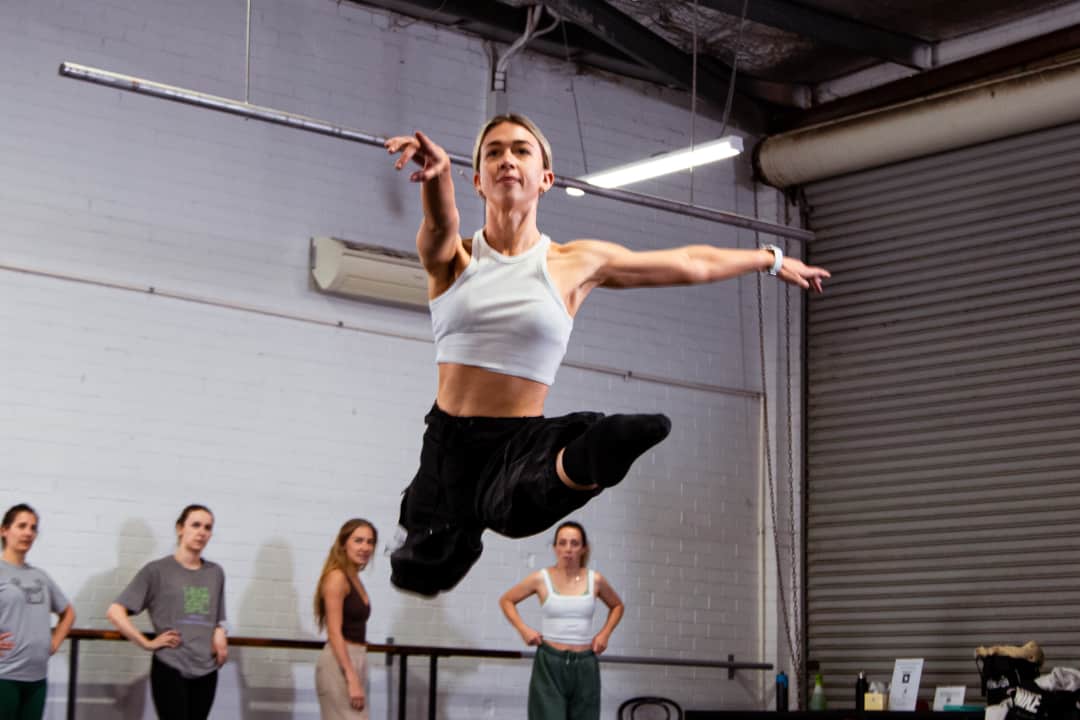Choosing the most appropriate level for yourself
If you’ve walked into our studio you’ve probably seen the ‘Dance Etiquette’ fliers and posters. For those of us that have grown up in the dance world, some of these seem like no-brainers, but to be honest if you haven’t lived a great part of your life in the studio, why would you?
You may have guessed there are certain do’s and don’ts in dance class. There are the standard no-brainers such as no chewing gum in class – this is a safety issue. Get to class on time – missing the entire warm up is not safe for you, plus you deny yourself the opportunity to get into the right mindset and physical preparedness t for the rest of the class. No talking while the teacher is instructing. I mean, I get it. Some classes are a total vibe. It’s not just the dancing you go for, but the whole atmosphere, and trust me when I say us teachers vibe off this too. But please don’t talk while the teacher is talking and giving instruction. It’s just plain disrespectful. Save it all for after class.
Turn your phone off before class
Always switch your phone to silent before class starts. Do not let it ring!
I remember taking a Hip Hop Class in New York with the iconic Brian “Footwork” Green. Someone’s phone started ringing. They ignored it, acting like it wasn’t there’s and finally it stopped.
Ten seconds later it started ringing again!
Brian had already said his piece, but when the phone started again, he said “if it’s your phone just go and get it”. So, this lady went to get her phone. He said to her “bring it to me” so she brought it to him.
Low and behold he answered the phone call on her behalf, and said “She’s in dance class, is this urgent?” then hung up.
In that moment I was so glad that it was not my phone that rang. But boy oh boy, as a teacher, when you hear a student’s phone ring, I must admit there is a slight temptation to re-enact the scene above. 🙂
So please, turn your phones off. If you’re expecting an urgent call let the teacher know that you’re expecting something urgent, put the phone on vibrate and stay nearby. Quietly take the call outside where you don’t interrupt the class. But whatever you do, do not let your phone ring or beep loudly during class.
Certain dance styles call for even more specific expectations
Ballet, for example requires that you attend class with your hair pulled back (preferably in a bun). If it’s your first time, taking a dance class, don’t hesitate to ask. Our team of receptionists are always ready to help. We would much prefer you go into class prepared with all that you need to know.
Experience
One piece of dance class etiquette that is hard to articulate, is “take class suitable for your level of experience”. By this I mean, don’t take an intermediate or an advanced level class if you’ve only had a few months (or less) of lessons learning that dance style. Don’t attempt a higher-level class without first speaking with your teacher to see if you’re ready to progress to a higher level. And certainly do not go in with the mindset “if I try a much harder level I’ll get better faster”.
There are several reasons why you shouldn’t attempt a class too far ahead of your competencies.
Firstly, safety
Attempting moves possibly beyond your competency is dangerous to you and, also dangerous to others in the class. You may execute a particular move without the right technique causing injury to yourself, or you may simply fall out of a step and onto or in the way of other students. Or simply not time it correctly which then results in you unintentionally striking other students. Safety is paramount. Yours and that of others in the class.
Secondly you can really change the direction of the class
Unintentional as that may be if you’re significantly behind in the level of the class the teacher will have a desire to help you along by giving you alternatives, or further explanation. This will take the teachers attention away from the students that are appropriately suited for the level of the class. This can be unfair to others in the class. And look, teachers are always there to help and to nurture and will always want to help, and will likely never say anything, but this really is something to be conscious of. If you need further explanation or need things to be broken down. It would be best to consider trying a lower-level class where steps are broken down in greater detail.
This reminds me of another class I was lucky enough to take in New York taught by the legendary Frank Hatchett. Mr. Hatchett’s Jazz classes were incredibly popular. I say were, as he is has since passed. They were attended by Broadway professionals, those trying to break into the industry, and serious hardcore dance students like myself.
In this one heavily packed Intermediate level jazz class there was this one student who was clearly very eager and stood in the front row in the middle of the studio. I took my safe spot in the bottom downstage right corner of the studio in the second row (my safe zone).
To be honest I never noticed this student until Mr. Hatchett stopped the class, and told the girl to demonstrate a part of the step. It was something very simple. She couldn’t.
He asked her “do you know what that is?” she said “no”. Then he said something along the lines of “well what are you doing in this class? You should be doing foundations. And why have you taken space front centre where you’re always a count behind?”. It was more a “scolding” than a mere “telling”. And he sent her to the back of the studio and said something along the lines of “come to the front only when you’re ready.”
I get this is New York, not Perth. While most teachers, wouldn’t approach this situation this way, the sentiment shouldn’t get lost. Going to a class of a level that is far too advanced for you affects the teacher and the other students in the class.
In saying all of this, this does not mean you start in a beginner class and stay there forever. You have to progress slowly through the levels as you gain competence.
How do you do this? Well first ask your teacher.
They have seen you in class, they have seen how you’ve developed they will be able to tell you honestly if they think you could cope well in a class of a higher level.
When you do progress into a higher-level class here are some things to consider. Don’t stand at the front in the middle of the floor, but instead opt for a position at the back of the class where you can see what the students in front of you are doing as well. This will give you an opportunity to “read the room” so to speak, and understand the dynamics of this particular class, and how the teachers and students progress through the class.
Secondly, be conscious of the kinds of questions you may ask. If you’re in an advanced class, there might already be certain expectations that students already have an understanding of what certain steps are and how to do them. Asking how to do a particular step that students in a class of that level may be expected to know, might set the class back. This can be a hard to resolve, as it is important to ask questions, and as a teacher I encourage it. It’s sometimes better to watch the other students first, see how they do it, and see if your question is answered this way, if not then by all means ask away.
Just be conscious that you’re not delving into minutia that makes the class all about you, and less about the class the teacher had planned.
Finally, if you’re in a class that is of a level very much higher than what you are ready for, be patient and kind to yourself. Try not to get frustrated or angry with yourself.
Teachers especially pick up on this and could take this personally.
For any progress there needs to be some level of discomfort and even failure. Ride with it. And as corny as this may sound, actually take joy in it. It’s a safe space at The Dance Workshop. Acknowledge the small breakthroughs you have weekly. Acknowledge that you won’t be able to do everything all at once, and after class ask your teacher if they can spare 5 minutes to explain something if you really need that clarification. We will always be willing to help.
Ashanti.



